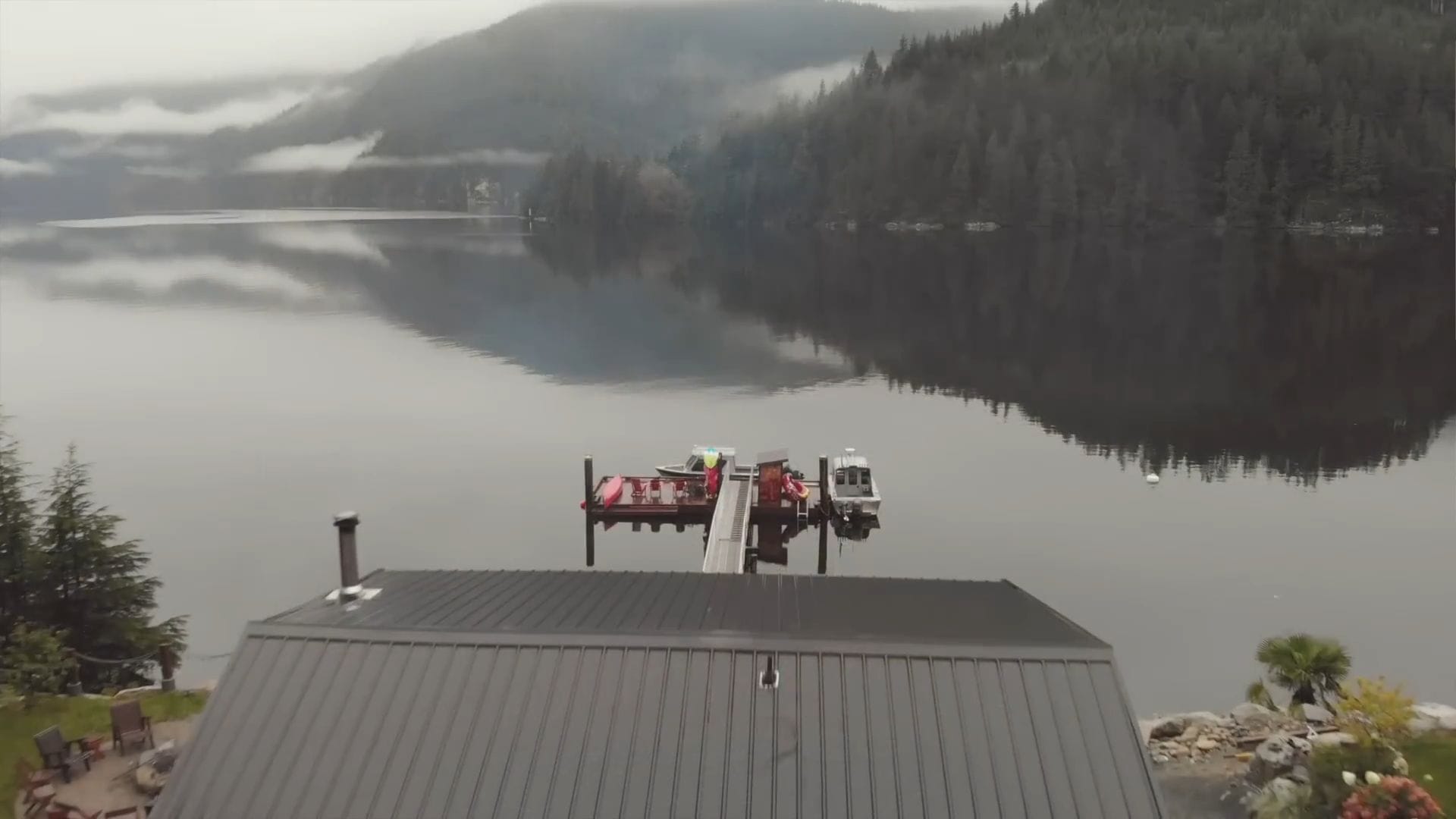This Family Lives Completely Off Grid With No Road Access
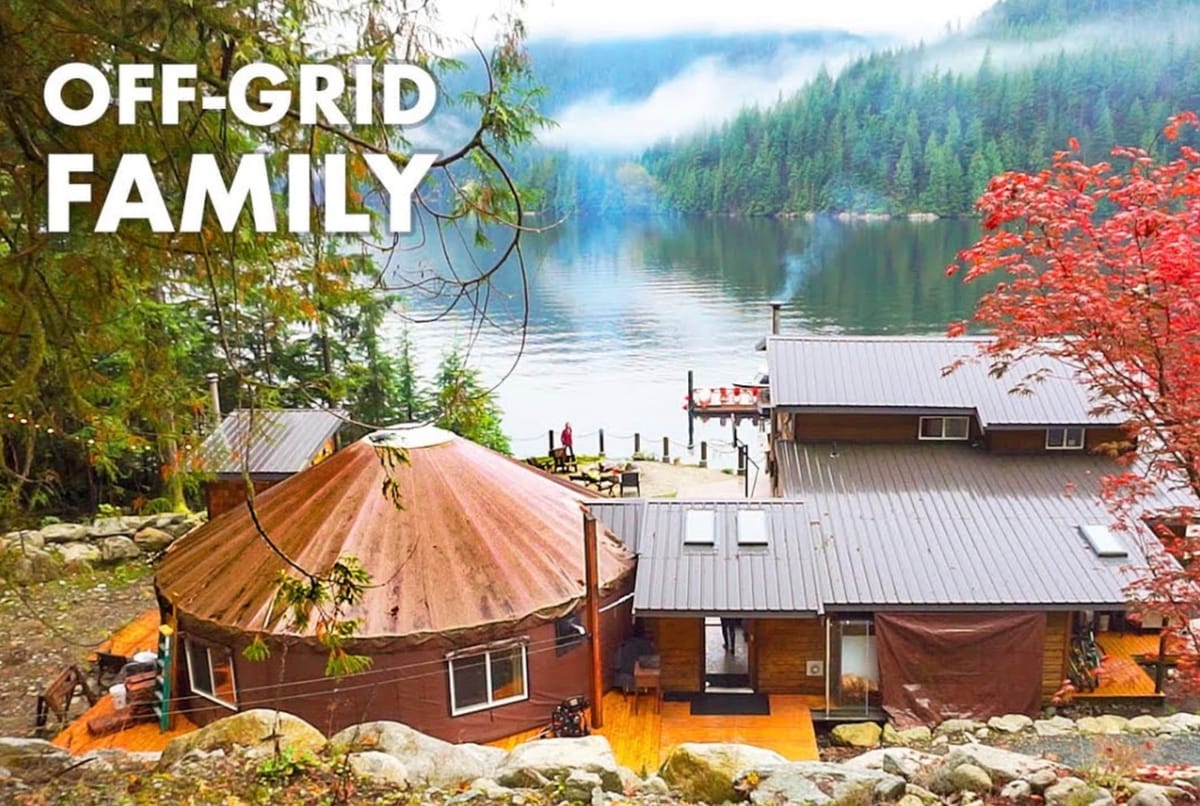
Welcome to one of the most remarkable off-grid homes you’ll ever experience, where the journey begins long before you even step through the front door.
This stunning waterfront property can only be reached by boat, making it feel like a private island retreat just minutes from civilization.
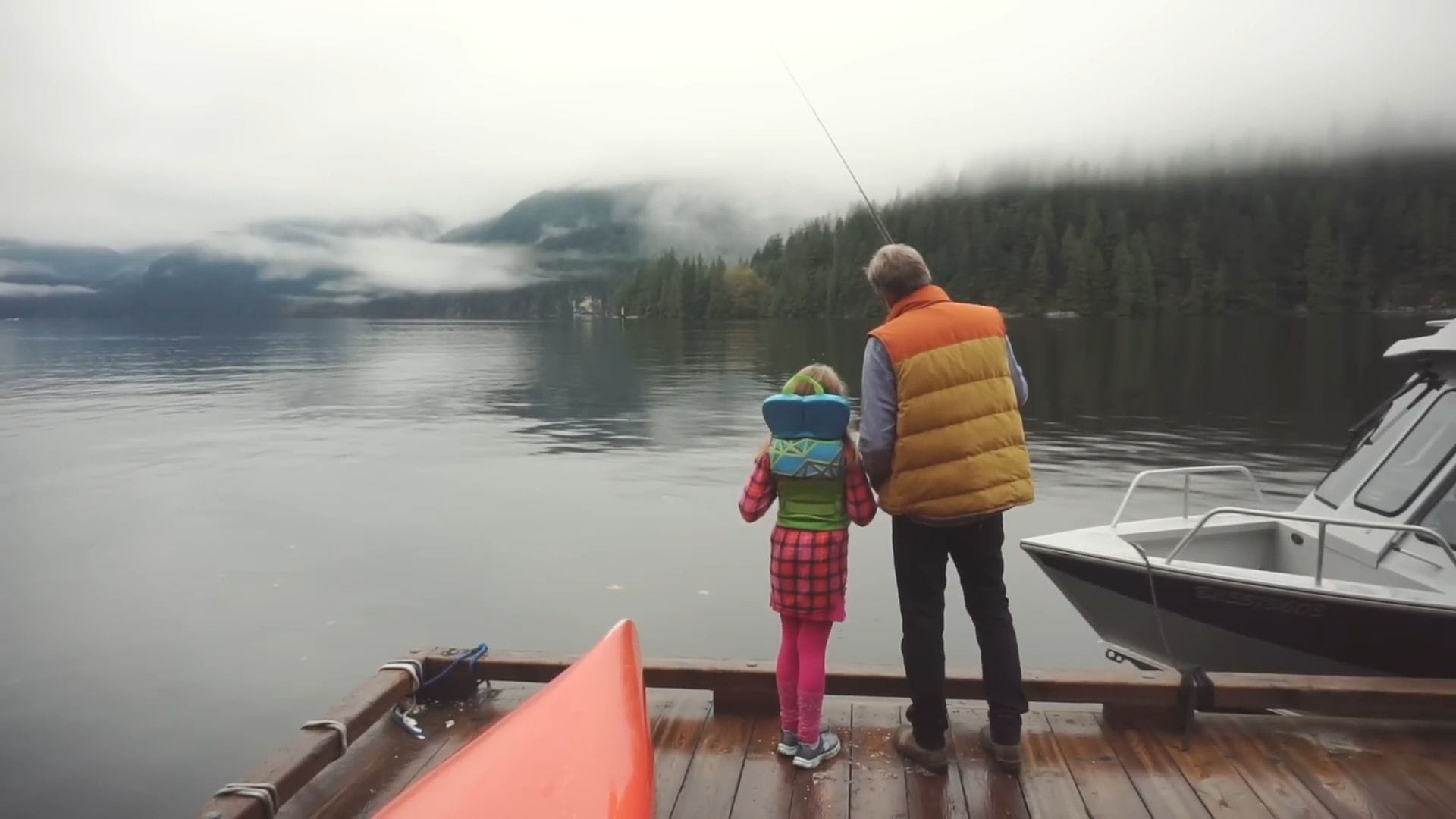
The original structure tells a story of transformation and dreams, where Mark and Chera discovered their calling after a special encounter with nature. A stellar jay seemed to guide them to this very spot, creating an almost mystical connection to the land that would become their family sanctuary.

What started as a simple cabin purchase quickly became an adventure in off-grid living when they discovered there was no road access, no power lines, and no infrastructure. The challenge only fueled their determination to create something extraordinary for their family of five.

This incredible home now houses three children aged fourteen, twelve, and eight, who have embraced this unique lifestyle completely. The kids attend school in town but return each day to a world of endless outdoor adventures and genuine family connection time.
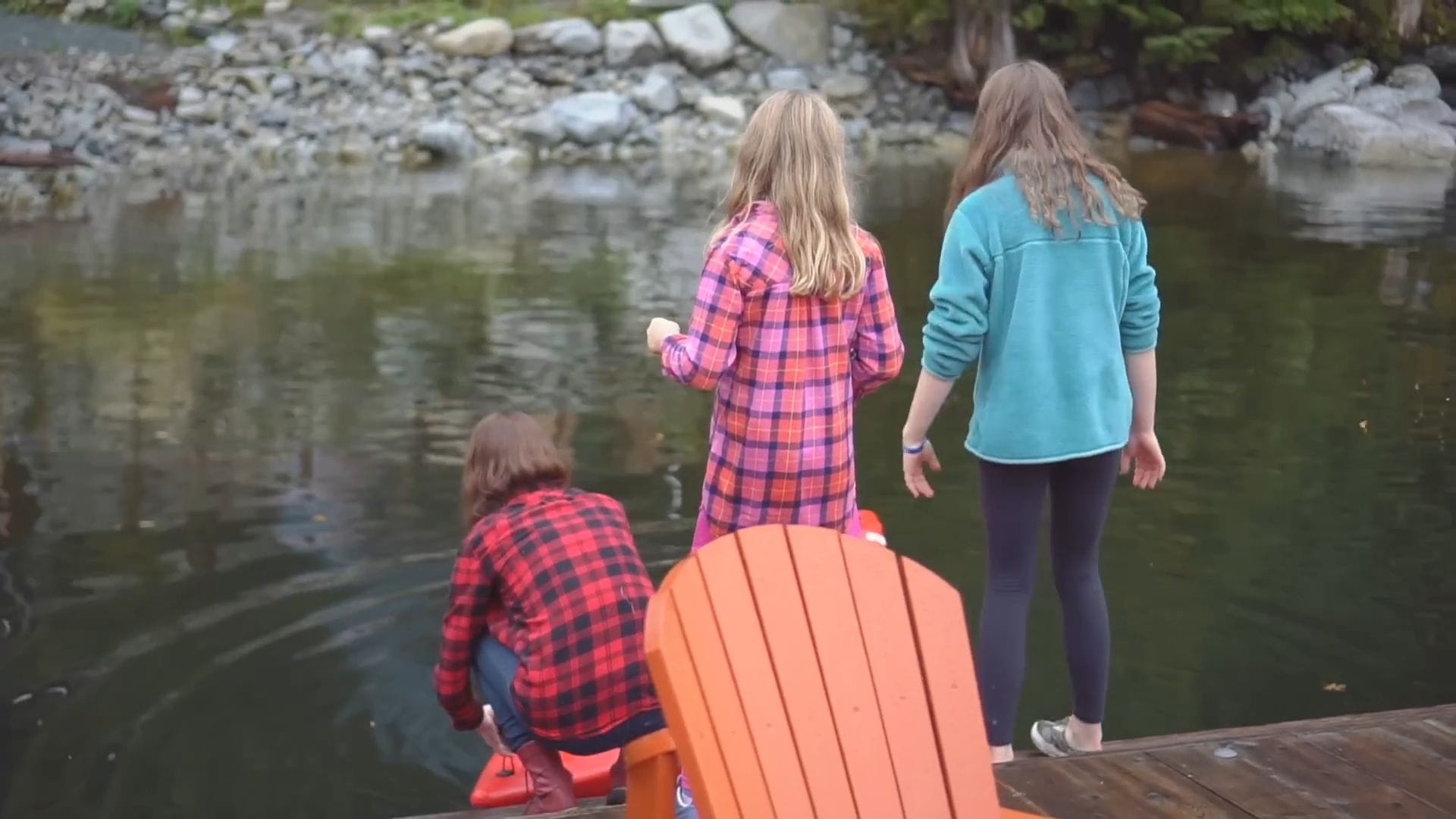
The power system here is absolutely ingenious, featuring eighteen solar panels strategically positioned to capture the southwestern sun exposure. During summer months, this setup easily runs everything from a proper dishwasher to multiple refrigerators and LED lighting throughout the home.

But here’s where things get really impressive – they’ve installed a remarkable hydro turbine system that draws water from a river about a thousand feet away. The water pressure creates about 100 PSI by the time it reaches the house, spinning the turbine fast enough to generate electricity that flows directly into their battery bank.

The heating system showcases multiple clever solutions, starting with a pellet stove that can run for three days on a single loading. This keeps the children’s sleeping area at a constant comfortable temperature, even when the family is away during the day.

The main living area features a large wood stove that’s been upgraded to heat significantly more square footage than their previous system. Now the entire house stays warm and comfortable, with wall-mounted propane heaters available as backup for extremely cold weather.

Their water system draws from the same creek that powers their turbine, running through two sophisticated filtration stages. The first filter removes larger particles like sand and rocks, while the second provides finer filtration before the water enters their home.

The septic system represents another engineering marvel, using a gravity-fed holding tank connected to a macerator pump. This system shoots waste up through a two-inch line to their septic field, keeping everything properly managed and environmentally responsible.

The renovation story reveals the incredible challenges they overcame, starting with a structure that was wetter inside than outside. An inspector initially recommended complete demolition, but they persevered and transformed the space into something truly livable within eight months.
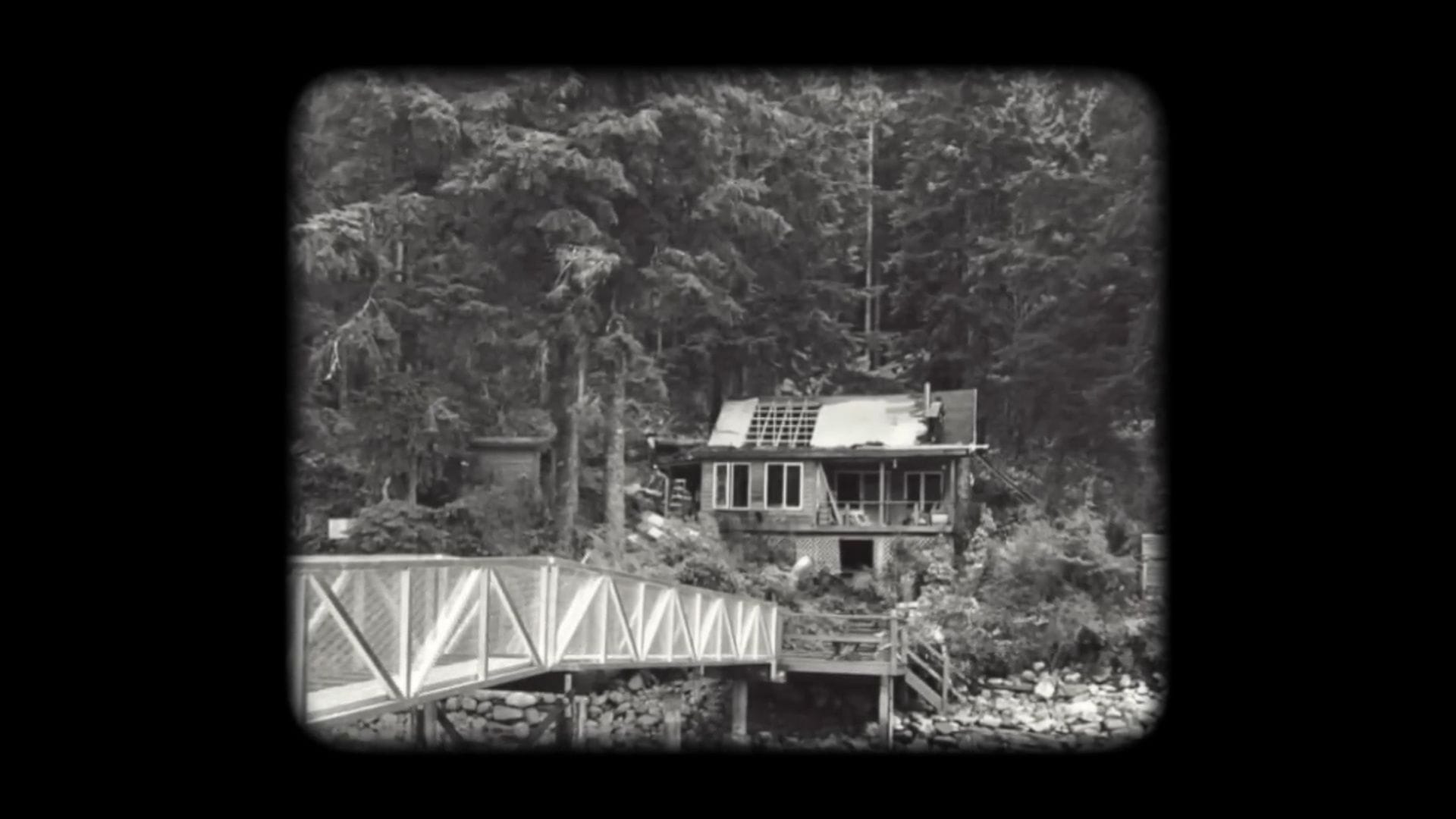
The unique layout includes a yurt connected to the main house through a custom mudroom, creating separate sleeping quarters for the children. This creative solution emerged when they realized the kids needed a safe, warm space that connected directly to the main house.
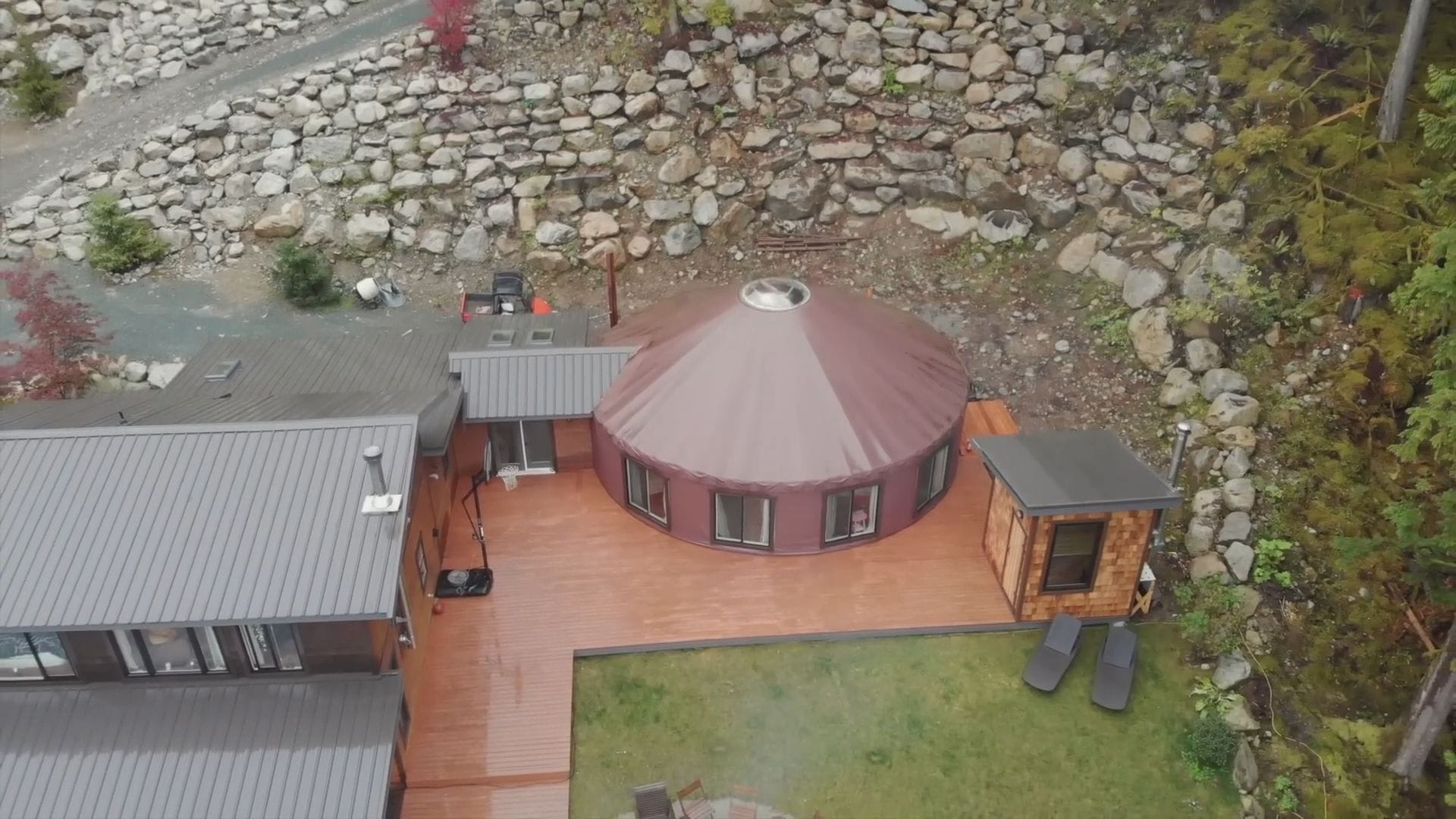
Every single building material, appliance, and piece of furniture had to arrive by barge or boat, creating logistical challenges that required constant coordination. They even transported an excavator by barge, along with lumber, an RV, and countless other necessities for their off-grid dream.

Their daily commute routine involves a twenty-minute boat ride to the marina, where the family drops off garbage and recycling before heading to school and work. The boats are equipped with heaters and GPS systems, making the journey comfortable regardless of weather conditions.

This remarkable home proves that with creativity, determination, and community support, it’s possible to live comfortably off-grid while maintaining modern conveniences. Mark and Chera have created not just a house, but a lifestyle that connects their family to nature while never looking back toward city living.
